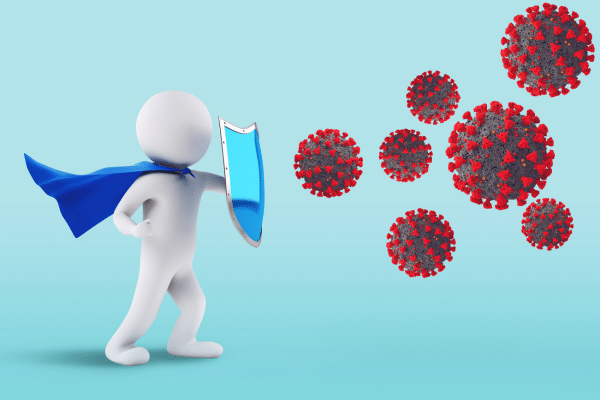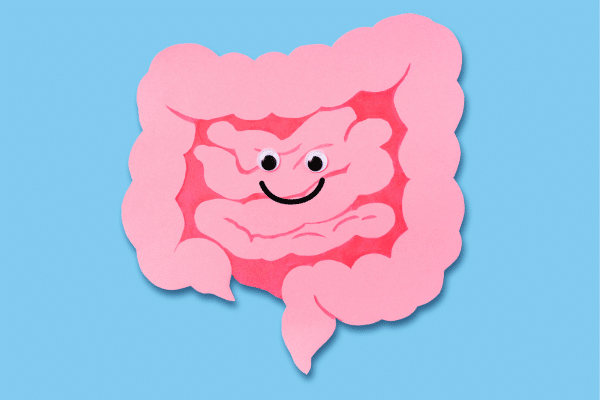Nuts and seeds are often lauded as powerhouses of nutrition, packed with essential vitamins, minerals, and other nutrients vital for maintaining a healthy body. These small but mighty food items offer a myriad of health benefits, ranging from improved brain function to enhanced heart health. This blog post delves into the various advantages of incorporating nuts and seeds into a daily diet, revealing how these natural wonders can contribute significantly to overall wellness. Understanding their impacts can be a key step towards a more balanced and nutritious lifestyle.
Contents
Enhances Brain Function

The brain is an organ that thrives on proper nutrition, and nuts and seeds offer an abundance of nutrients that support cognitive health. Omega-3 fatty acids, prevalent in walnuts and flaxseeds, are essential for maintaining brain function and preventing cognitive decline. These fatty acids are known to enhance memory and may even reduce the risk of certain mental disorders. Additionally, the presence of Vitamin E, found in almonds and sunflower seeds, acts as an antioxidant, protecting brain cells from oxidative stress, which is linked to Alzheimer’s and other age-related cognitive impairments.
Many nuts and seeds are rich in folic acid, magnesium, and healthy fats, all of which are crucial for brain health. Folic acid, for example, aids in managing levels of homocysteine in the blood, high levels of which are associated with cognitive impairment. Magnesium, found abundantly in pumpkin seeds and almonds, plays a significant role in nerve transmission and preventing excitotoxicity, a process that can damage nerve cells. By including a variety of these nutrient-rich foods in a diet, one can support brain health and potentially improve cognitive functions over time.
Strengthens Immune System

The immune system functions best when supported by a range of vitamins and minerals, many of which can be found in nuts and seeds. Almonds, for instance, are a great source of Vitamin E, an antioxidant that is essential in maintaining immune system health. Vitamin E helps in combating infection-causing bacteria and viruses. Similarly, selenium, found in Brazil nuts, has been shown to strengthen the immune response to infections and can even play a role in preventing cell damage.
Zinc is another crucial element for immune function, and foods like pumpkin seeds are rich in this mineral. Zinc contributes to the development of immune cells and inflammatory response regulation. Consuming a variety of nuts and seeds ensures a good intake of these key nutrients, thus providing a natural boost to the immune system. Alongside their immune-boosting properties, nuts and seeds also contain compounds that have anti-inflammatory effects, further supporting the body’s ability to fight off illnesses and recover more efficiently.
Improves Skin And Hair Health

Nuts and seeds, with their rich stores of vitamins and minerals, are excellent for maintaining healthy skin and hair. Almonds, for instance, are packed with Vitamin E, a nutrient known for its skin-health benefits, including protecting skin from oxidative damage caused by free radicals and UV rays. Similarly, flaxseeds, rich in Omega-3 fatty acids, contribute to skin hydration and may reduce inflammation associated with skin conditions like acne and eczema. These natural oils found in many nuts and seeds are also crucial for maintaining the skin’s lipid barrier, enhancing its hydration and appearance.
For hair health, nuts and seeds offer a multitude of benefits. The high protein content in nuts like almonds and walnuts supports hair growth, as hair is primarily made of protein. Additionally, the zinc found in pumpkin seeds and cashews helps prevent hair loss by strengthening the hair follicles. The presence of selenium in Brazil nuts is known for promoting a healthy scalp, which is essential for lustrous hair. Including a variety of these nutrient-rich foods in one’s diet can not only enhance the appearance of skin and hair but also contribute to their overall health.
Aids In Weight Management

Incorporating nuts and seeds into a diet can be a smart strategy for weight management. Despite their high-calorie content, these foods are rich in protein and fiber, which are key components for satiety. This means that a handful of nuts or seeds can keep hunger at bay for longer periods, reducing overall calorie intake. Moreover, the body doesn’t absorb all the fat present in nuts, which further aids in weight management. Research has shown that people who regularly eat nuts tend to be leaner and have a lower risk of weight gain in the long term.
Furthermore, the metabolic benefits of nuts and seeds are significant. These foods can increase the metabolic rate, meaning the body burns more calories while digesting them, a phenomenon known as the thermic effect of food. Also, the healthy fats in nuts and seeds, such as monounsaturated and polyunsaturated fats, are known to positively impact metabolism and fat distribution in the body. Regular consumption of nuts and seeds, in controlled portions, can therefore be an effective component of a weight management plan.
Boosts Heart Health

Nuts and seeds have been consistently linked to improved heart health. Rich in unsaturated fats, fiber, and omega-3 fatty acids, these foods are known to lower bad cholesterol levels (LDL) and maintain healthy blood vessels. For example, the omega-3 fatty acids in walnuts and flaxseeds can reduce the risk of arrhythmias, which can lead to heart attacks. Additionally, the fiber in nuts and seeds helps to reduce cholesterol levels and protect against heart disease. L-arginine, an amino acid found in nuts, is also beneficial as it helps improve the health of artery walls, making them more flexible and less prone to blood clots.
Epidemiological studies suggest that regular consumption of nuts and seeds is associated with a lower risk of developing heart diseases. The magnesium found in almonds and cashews plays a vital role in preventing heart attacks and hypertension. Furthermore, the antioxidant properties of Vitamin E, found in nuts like almonds and hazelnuts, contribute to the protection of the heart by preventing the oxidation of LDL cholesterol, which is a major risk factor for heart disease. Therefore, adding a variety of nuts and seeds to a diet can be a delicious and natural way to boost heart health.
Enhances Digestive Health

The dietary fiber in nuts and seeds plays a critical role in enhancing digestive health. High fiber foods, like almonds, pistachios, and sunflower seeds, aid in regular bowel movements and prevent constipation. This type of fiber also acts as a prebiotic, feeding the beneficial bacteria in the gut, which is essential for maintaining a healthy digestive system. The regular consumption of these fiber-rich foods can contribute to a balanced gut flora, which is crucial for overall health, including effective digestion and nutrient absorption.
In addition to fiber, certain nuts and seeds also contain digestive enzymes that can aid in breaking down food and absorbing nutrients more efficiently. For example, papain and bromelain, enzymes found in some seeds, help in digesting proteins and reducing inflammation in the gut. This can be particularly beneficial for individuals with digestive disorders or those who experience bloating and indigestion. Including a variety of nuts and seeds in one’s diet can thus contribute to a healthy digestive system, ensuring that the body reaps the maximum benefits from the foods consumed.
Regulates Blood Sugar Levels

Nuts and seeds can play a significant role in regulating blood sugar levels, making them a beneficial addition for individuals managing diabetes or those at risk of developing the condition. The low glycemic index of most nuts and seeds means that they have a minimal effect on blood sugar levels. This is partly due to their high fiber and healthy fat content, which slow the absorption of carbohydrates, preventing rapid spikes in blood sugar. For instance, almonds have been shown to reduce the rise in blood sugar and insulin levels after meals.
Additionally, the magnesium found in nuts and seeds, like cashews and pumpkin seeds, is known to improve insulin sensitivity, an important factor in maintaining healthy blood sugar levels. Studies have demonstrated that higher intakes of magnesium are associated with a lower risk of type 2 diabetes. By incorporating a variety of nuts and seeds into meals and snacks, one can help stabilize blood sugar levels, which is crucial for long-term health and prevention of diabetes-related complications.
The Bottom Line
Nuts and seeds are not just tasty snacks; they are nutritional powerhouses that offer numerous health benefits. From enhancing brain function and boosting heart health to aiding in weight management and improving skin and hair health, these small foods pack a big punch. Regularly including a diverse range of nuts and seeds in a diet can significantly contribute to overall well-being. Their unique combination of vitamins, minerals, healthy fats, and antioxidants supports various bodily functions and can help in preventing numerous health conditions. Whether added to meals, enjoyed as a snack, or incorporated into recipes, nuts and seeds are versatile and beneficial additions to any diet. Embracing these nutrient-rich foods is a simple yet effective step towards a healthier lifestyle.


